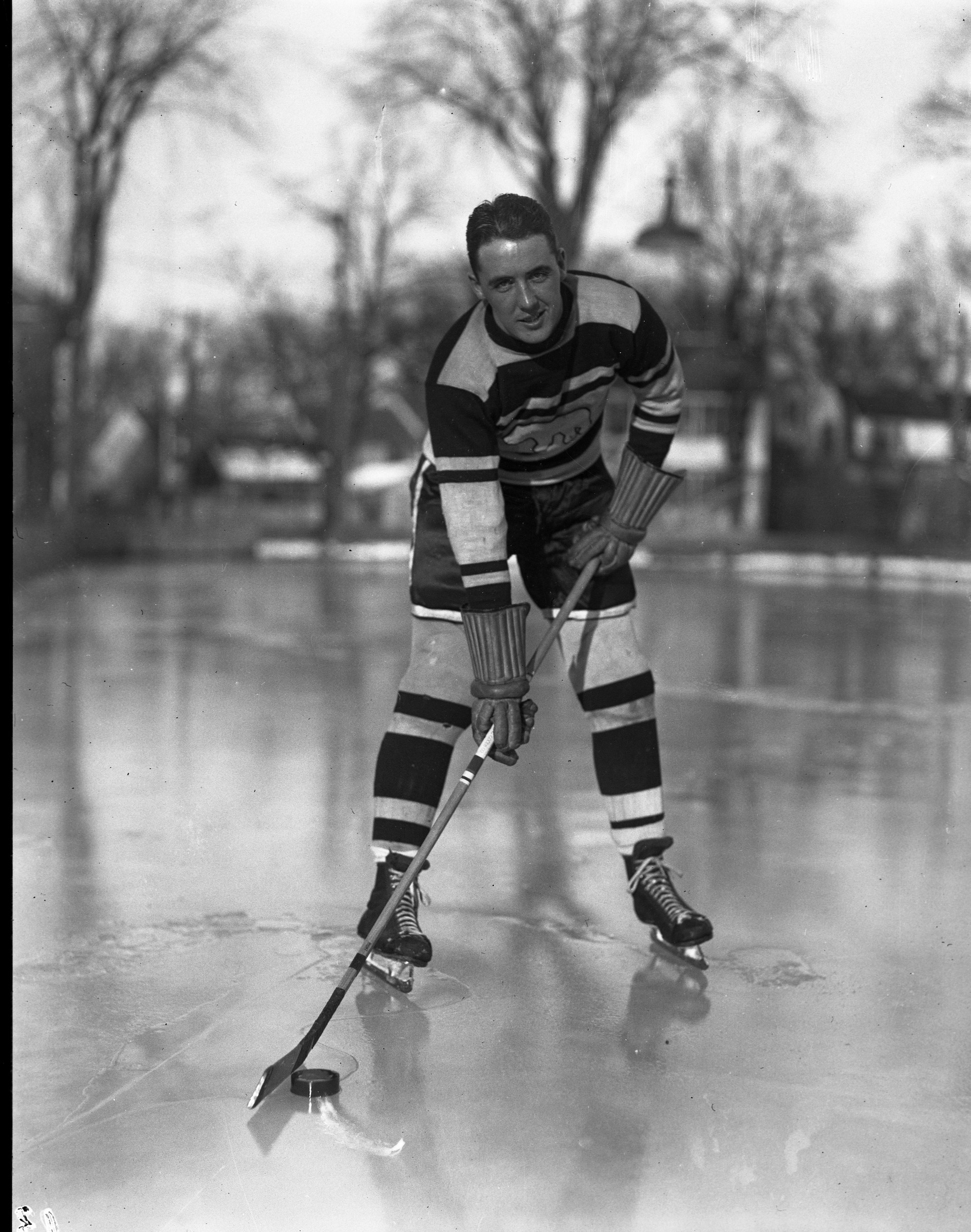15ORIENT: Administrative drama overshadowed athletics 90 years ago
October 16, 2020
 Courtesy of Bowdoin Special Collections and Archives
Courtesy of Bowdoin Special Collections and ArchivesThough life looked different at the College in 1930—all-male with fraternities on the rise—athletics were, just as they are now, a central part of the Bowdoin experience. Roughly 560 students were enrolled at the start of the 1930-31 academic year, and many played more than one sport, leaving some teams, such as football, with a lack of players for off-season training.
One of the major changes in athletics in 1931 was bringing the Athletic Council directly under the control of the Governing Board of the College, a shift from its previous years when a non-College-funded committee controlled funding, coaches and schedules. Under the College’s control, the Council was composed of five alumni, three faculty members and five undergraduates, and it was financed by the Treasurer’s Office.
The appointment of coaches was subject to review by the Athletic Council, though undergraduates did not have the right to vote on coach appointments. This provision became controversial in early 1931 when beloved hockey and baseball coach Benjamin F. Houser resigned.
“Ben Houser came to Bowdoin in 1918 with an enviable record in baseball behind him, both as player and manager. His advent marked the beginning of a new era in Bowdoin baseball,” read an article from February 11, 1931, in the 60th volume of the Orient.
Houser also led the ice hockey team to win state titles, though the team faced challenges due to poor facilities and equipment, according to the Orient. Indeed, their playing surface was not even covered to prevent snow or rain from collecting.
Houser’s resignation was immediately met with a petition circulated by the Student Council opposing the Athletic Council’s approval of his resignation. In a statement to the Orient, the Council expressed its frustration.
“Certainly the students or those whom they name to represent them should have an opportunity to state their ideas on the matter,” the Council wrote.
After the Athletic Council met in March to discuss the petition and decided not to reconsider Houser’s resignation, the Orient published a critical editorial titled “We Break Silence.” In this article, the Orient condemned alumni influence in athletics, claiming that the group forced Houser to resign, and called for more student representation.
“In conclusion, then, the Orient feels that the rights of the undergraduates have been shamefully neglected in this whole affair, and far from merely bewailing the fact, we herewith present our case that it may not happen again,” the Orient article reads.
President Sills even commented on this in his annual report, calling the piece a “rather lurid editorial.”
 Courtesy of Bowdoin Special Collections and Archives
Courtesy of Bowdoin Special Collections and ArchivesHIGHLIGHT REEL: FROM THE PAST
NO MORE REQUIREMENTS, FOR SOME
Before the 1931-32 academic year, every student was obligated to complete a physical education requirement each year. In his President’s Report issued in May 1931, then-president of the College Kenneth C. M. Sills proposed that juniors and seniors be “relieved” of this requirement beginning in the coming fall semester.
“All Freshmen and Sophomores must elect for at least one season of one year a sport from the following list: Track, football, baseball, hockey, swimming, wrestling, class football, touch football,” Sills wrote in the report.
KICKOFF
The football team finished its 1930 season with a record of 4-2-1 under coach Charles W. Bowser. The highlight of the season was when the polar bears beat the Massachusetts Aggies 45-0, which was, at the time, the largest margin of victory in nine years.
GO UBEARS!
Swimming, track and field, baseball, gymnastics and hockey all competed against New England teams that year as well. Among Bowdoin students, interfraternity athletic competitions continued in various sports, including swimming, touch football and baseball.
RAISE THE ROOF
In 1930, the hockey rink was outside and uncovered, so the Student Council adopted a plan in which each fraternity was required to send a delegation of first years to clear the rink of snow prior to the hockey team’s practices. In his report, Sills noted that the College needed a covered hockey rink, which he estimated would cost $30,000 to $40,000.
These conditions, however, did not stop hockey defenseman Harry B. Thayer from succeeding. After being elected President of his Senior Class in 1930, he was recognized as a member of the All-American Hockey Team for the third time, despite the team’s otherwise subpar performance.
“Thayer’s selection is perhaps the one happy result of an extremely unhappy season,” the Orient reported in April 1930. “Always the most brilliant man on the ice here in Maine, Thayer also eclipsed many defensemen in all parts of the country.”

Comments
Before submitting a comment, please review our comment policy. Some key points from the policy: